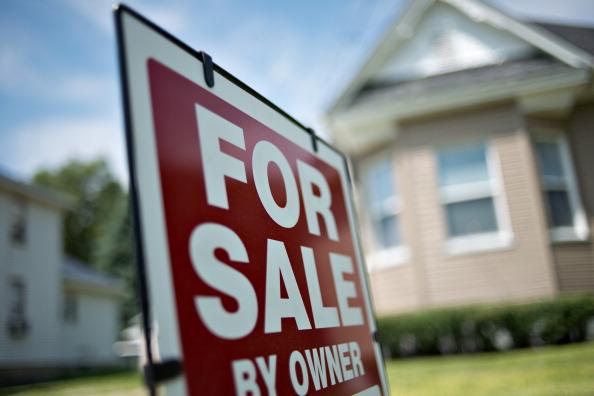Housing market experts lack confidence in an improvement in the housing market, especially the construction sector. Some are pointing fingers at the weather and others are blaming banks unwillingness to take mortgage lending risks. Many suggestions are hitting the air waves, but no one comes forward with solutions to help the housing market getting back to normal.
It is easy to blame the weather or economic conditions, when earnings decline and economic indicators are in a freefall, said a February article on the Daily Gains Letter (DGL). DGL and some market experts state that blaming the weather is a little farfetched. Instead, one should look at weaknesses inherent in the housing market.
“Judging by all the headlines, you’d have to be daft to think the sharp decline in housing market construction could be blamed on anything but the weather. But if you actually delve into the numbers a little, you’ll see that weather is the least of the housing market’s problems,” according to DGL.
Weaknesses in the Housing Market
Just to name one problem, new construction has been lackluster in the Northeast, Midwest, as well as in America’s South and West. The three month builder National Association of Home Builders (NAHB)/Wells Fargo Housing Market Index (HMI) fell during March in all regions. It fell by four points in the South and three points each in the Northeast and Midwest.
The HMI is derived from a monthly survey of NAHB members. Survey questions include rating of market conditions for the sale of new homes over a certain period of time. It also asks to predict the number of possible future buyers of new homes.
According to NAHB, reasons for the drop in builder confidence are the lack of building lots being in short supply and skilled labor is hard to find.
FitchRatings does blame the snow and rain storms for a decline in new construction of housing, but includes a caveat that other concerns affecting the housing market come also into play.
CoreLogic did an in-depth analysis on the effect of weather on the housing market and found that weather conditions do affect the market. But, the weather condition is not “sufficient enough to counteract the current weakness in the market.”
In a March report, the National Association of Realtors (NAR) said, “constrained inventory, restrictive mortgage lending standards and housing affordability less favorable than a year ago,” is affecting the housing market.
Mortgage as Major Impediment
Besides the weather and construction industry confidence, other major housing market weaknesses are mortgage availability and job growth.
“Mortgage credit isn’t nearly as easy to get as it was during the housing boom, and it shouldn’t be,” stated a recent article on the HousingWire website.
However, the same article states that as long as lenders sell their mortgages to the two mortgage giants Fannie Mae and Freddie Mac, they don’t need to tighten their underwriting standards. Actually, mortgage lenders might still reduce these standards even further to increase their lending activities.
Lending activities were far lower in the first quarter of 2014 over the fourth quarter in 2013.
According to an early April report by Inside Mortgage Finance, new home loan securities issued by the two mortgage giants Fannie Mae and Freddie Mac declined by 29.1 percent between the two quarters.
Furthermore, the volume of securities sold by the two mortgage giants dropped by 63.7 percent in the first quarter of 2014 over the first quarter in 2013. These decreases in providing funding to the housing markets represent the lowest quarterly total in 14 years.
The latest Mortgage Bankers Association (MBA) Mortgage Credit Availability Index (MCAI) increased by 0.44 percent in March over February. The MCAI focuses only on mortgage credit. Therefore, MBA states in its analysis that this is indicative of a loosening of credit.
Atypical Cause for Housing Market Problems
Mortgages, unemployment, builder confidence are generally used to analyze the housing market. However, a recent report by Michael Lombardi, states that homebuyers have been backing out of their contracts in large numbers.
“Underlining the strong sales of homes, the number of cancelled sales orders compared to overall sales (commonly referred to as the cancellation rate) is going through the roof,” said Lombardi.
The builder KB Home’s first quarter 2014 financial results publication states that in the first quarter of 2013 and 2014, 30 percent of all contracts were cancelled.
Builder D.R. Horton, Inc. disclosed in its 2013 annual report that in 2012 and 2013, as a percentage of gross sales orders, 24 percent of contracts were cancelled.
NVR, Inc. the parent company of Ryan Homes, NVHomes, Fox Ridge and Heartland, disclosed in its annual report that for all its homes, contract cancellations amounted to 15 percent in fiscal year 2013 and 2012 and 14 percent in 2011.
The problems in the housing market have a number of origins of which the most prominent are mortgage availability, true unemployment situation and builder confidence.
The majority of house market predictions are lackluster. The CBS Money Watch predicts that mortgage rate will be capped at 5 percent, but easier to obtain. Housing inventory will drop significantly and home affordability will drop because of investors’ home buying spree. Overall, less people will be able to afford a home and more will become renters.




